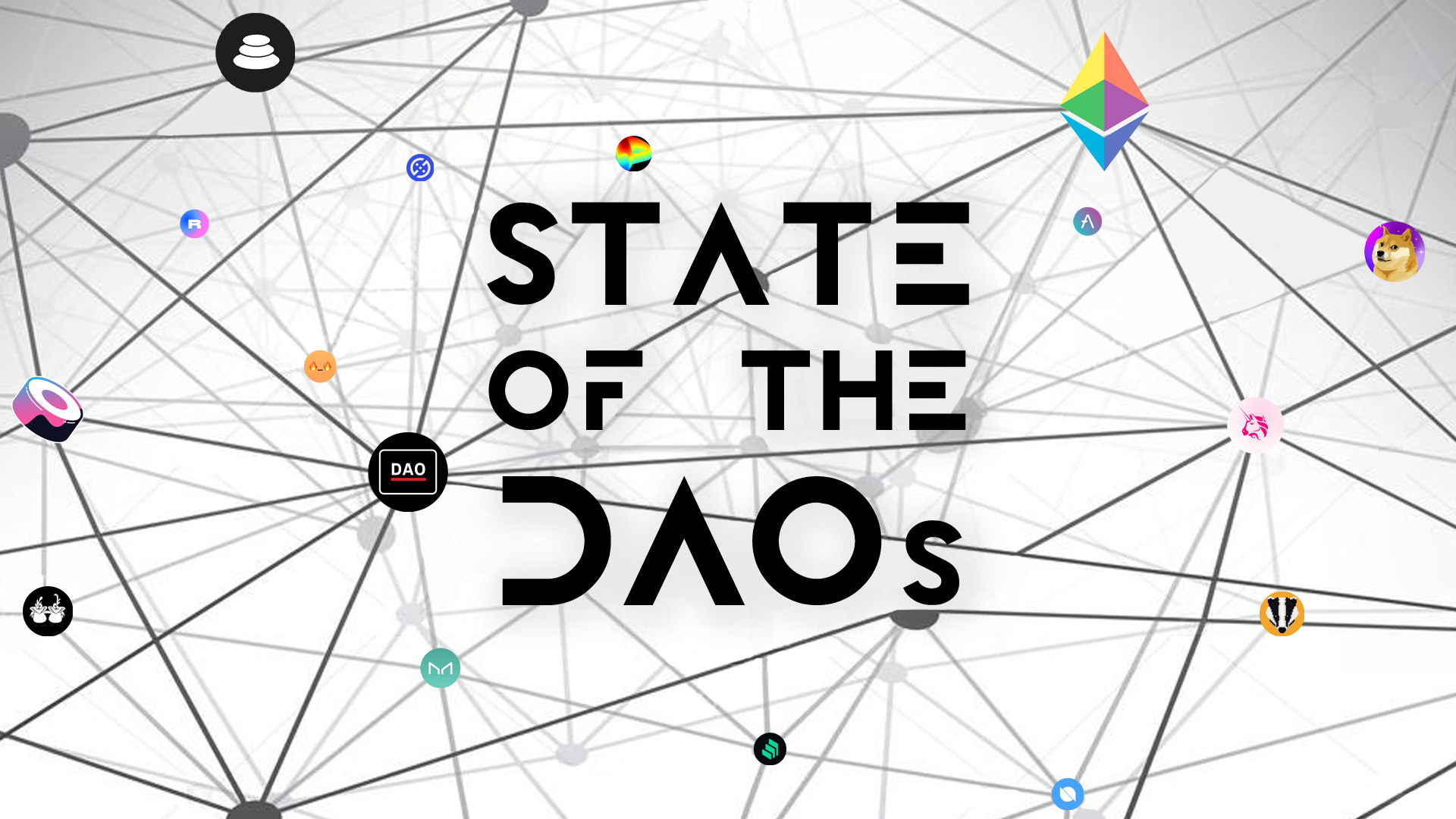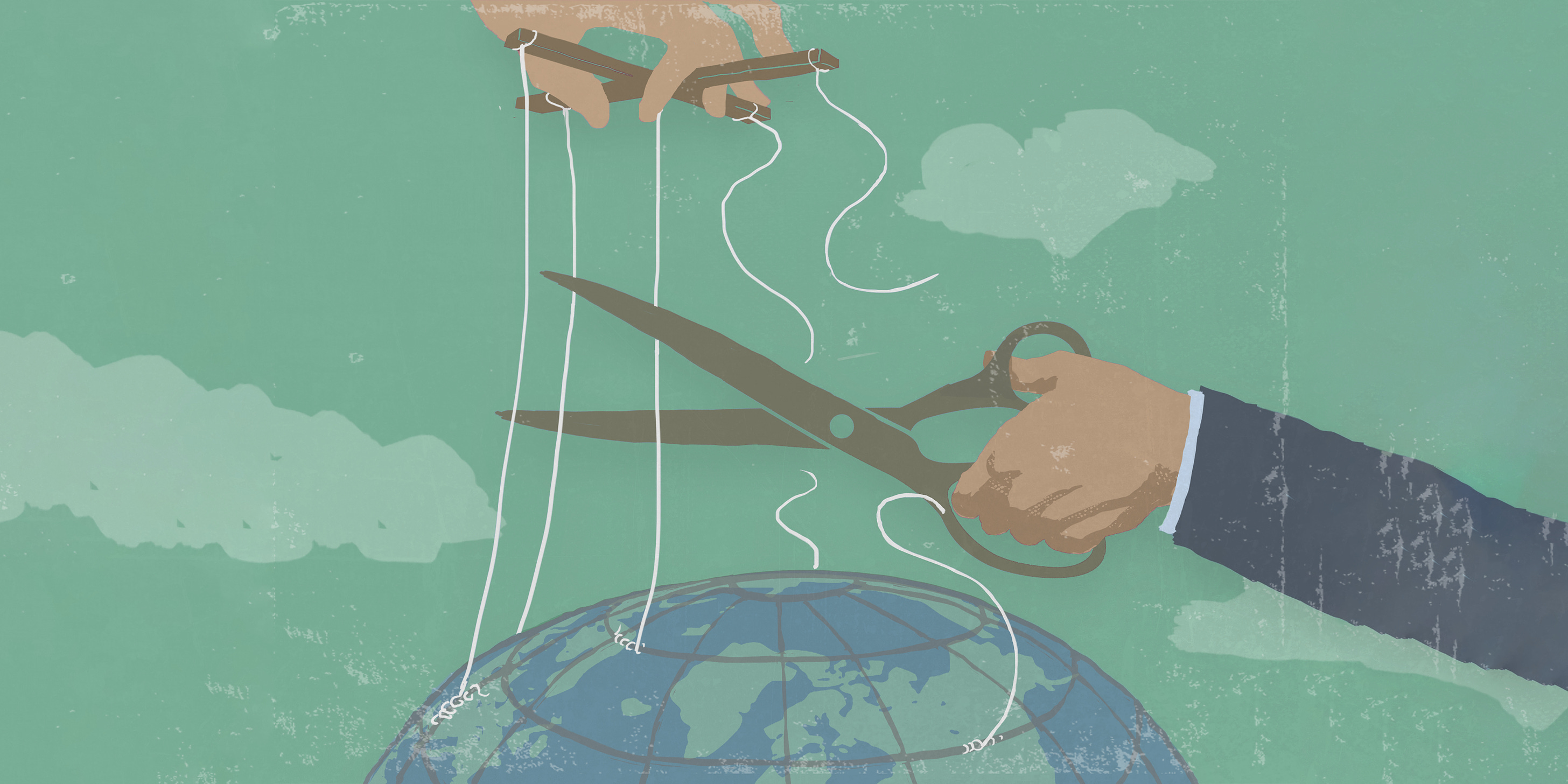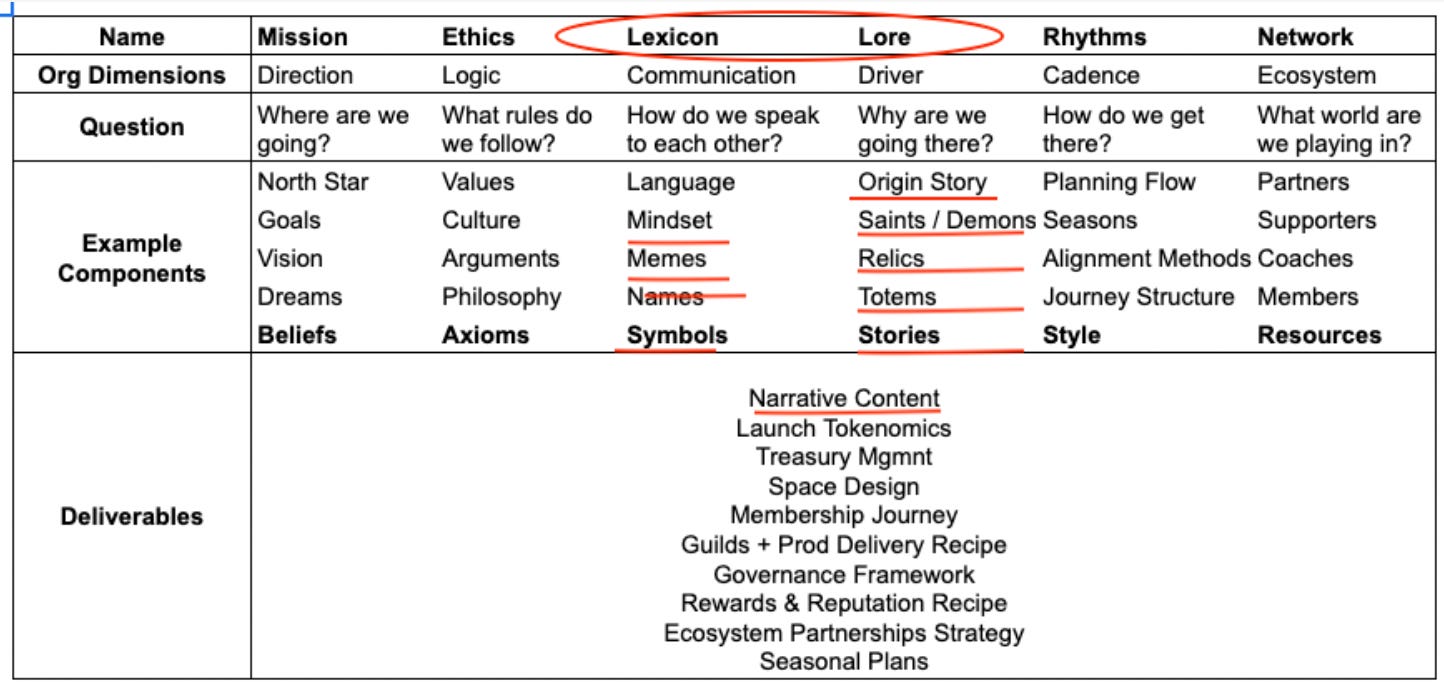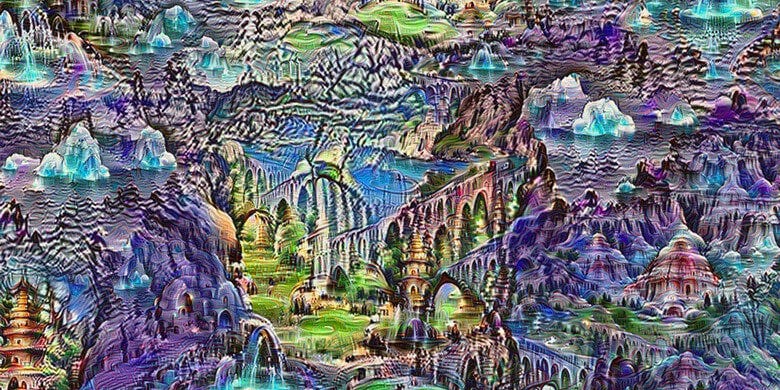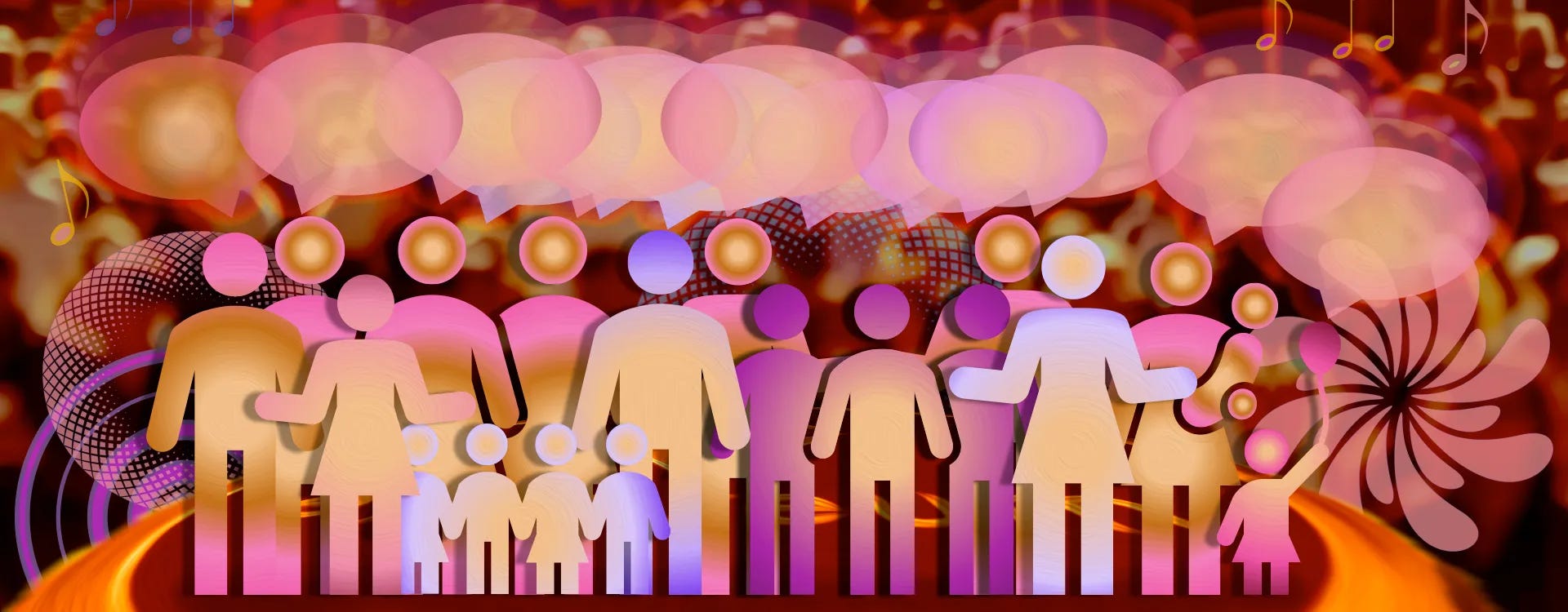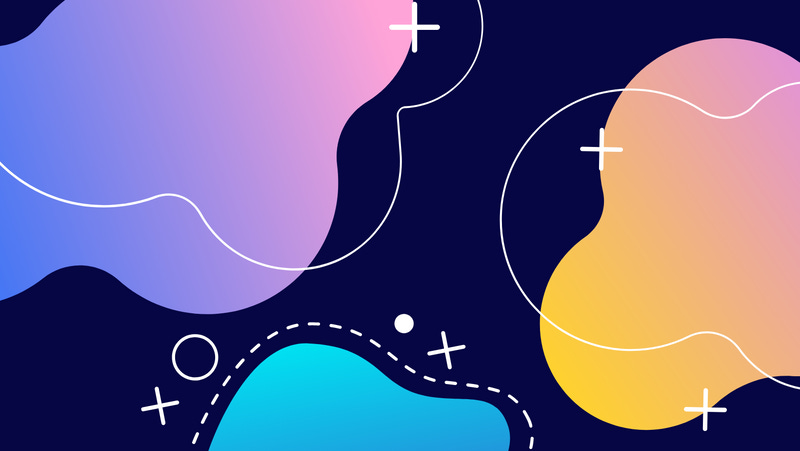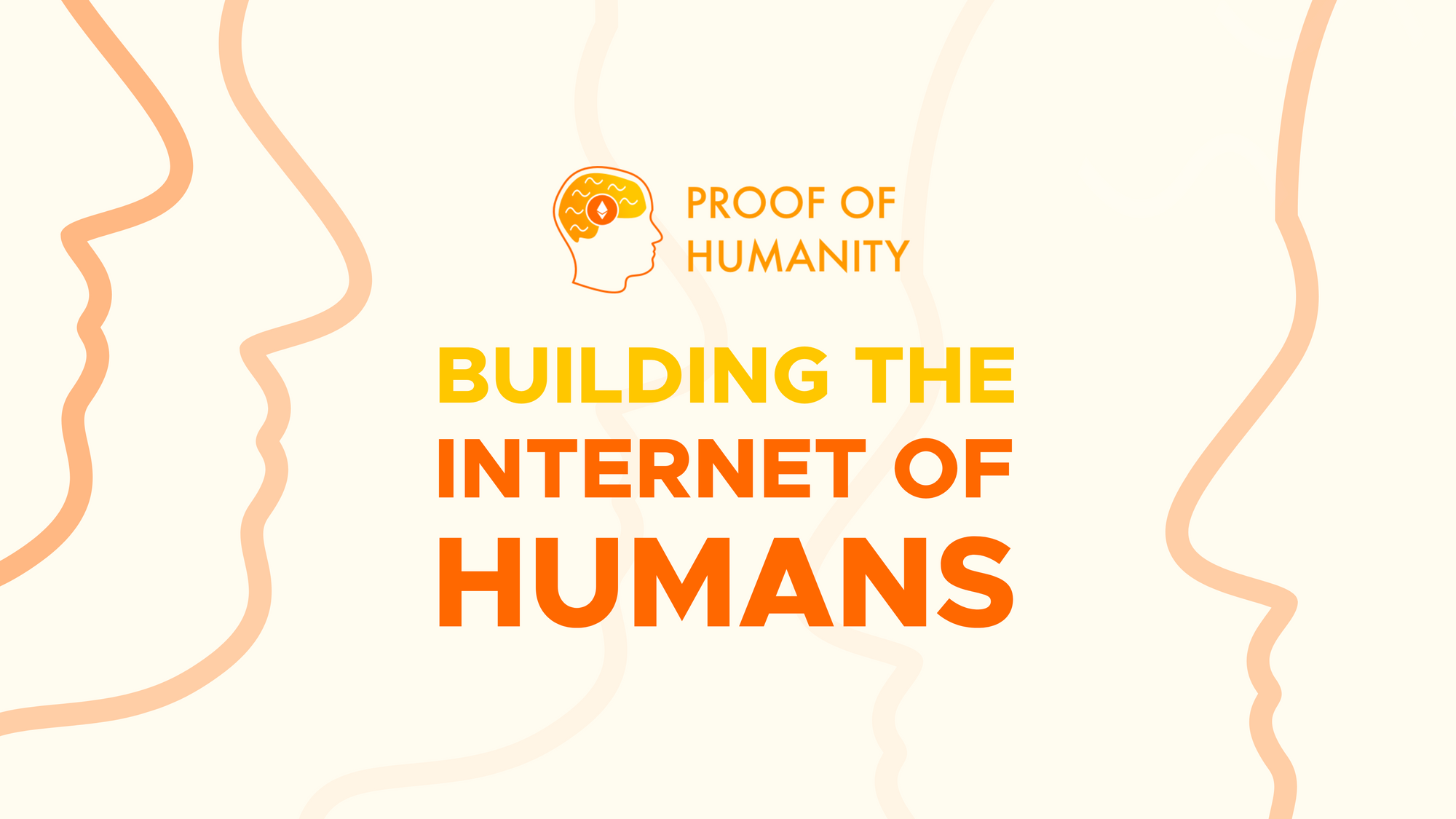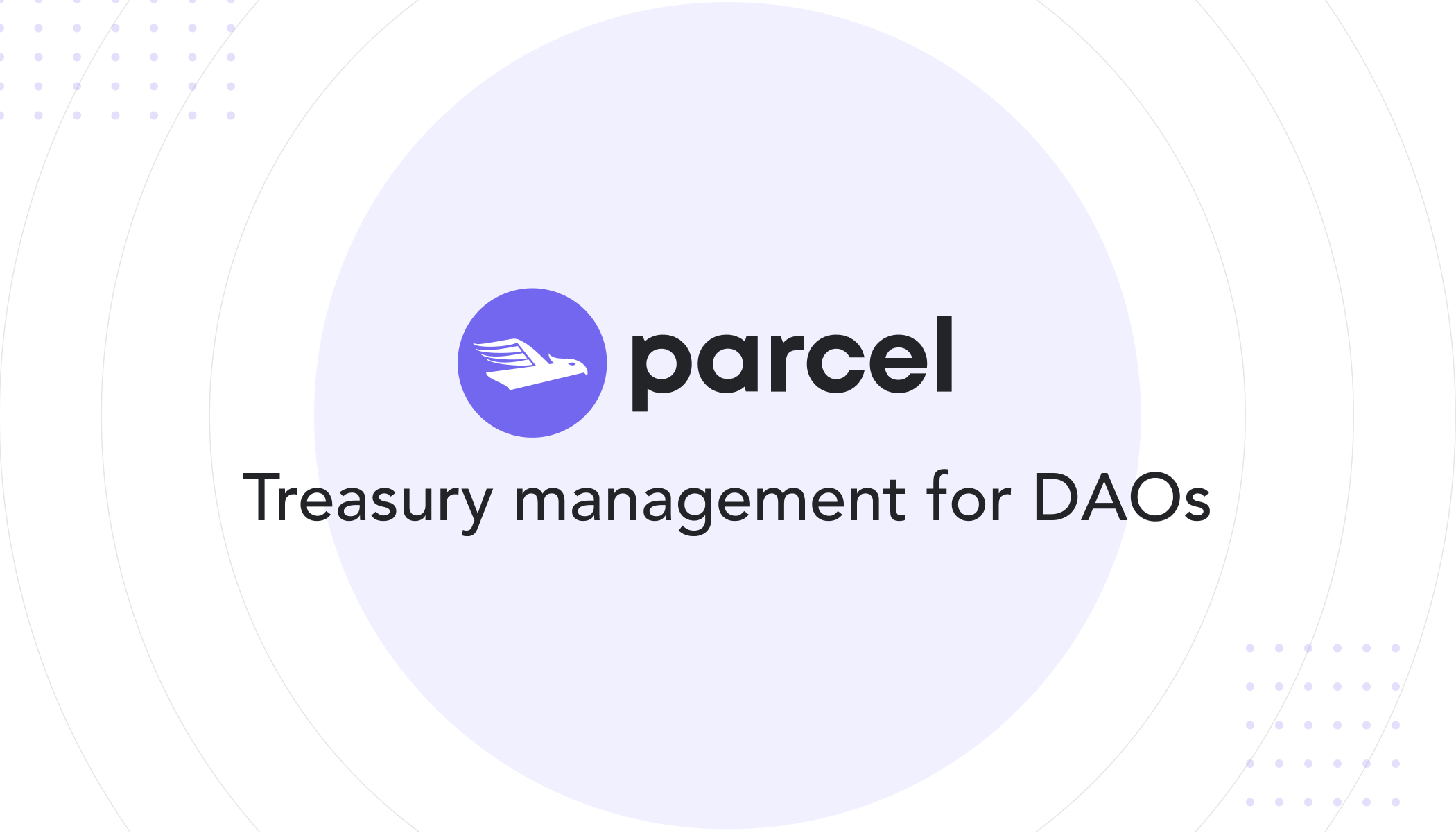Finding Freedom and Agency in DAOs | State of the DAOs
Finding Freedom and Agency in DAOs | State of the DAOsYou're reading State of the DAOs, the high-signal low-noise newsletter for understanding DAOs.Gm and welcome to DAOlife! The permissionless nature of DAOs inverts the typical power structures found in most corporations, allowing anyone to join, contribute, and earn. Rather than working hard and waiting to be seen and heard, DAOs optimize for agency, enabling those with vision and drive to create their own destiny. Permissionlessness and agency combine to decentralize power away from the few and distribute it to the many. This week, Siddhearta teaches us how to use this power to claim our freedom while offering us guidance as we exercise it. After that, we share the TL;DR on the latest DAO ecosystem takes and thought pieces, making it easy for you to cut through the noise and stay up to date on the world of DAOs. This is the current state of the DAOs. Contributors: BanklessDAO Writers Guild (Siddhearta, Alvo Von Alvensleben, hirokennelly.eth, march.401, teeLEROO, theconfusedcoin, Jake and Stake) This is the official newsletter of BanklessDAO. To unsubscribe, edit your settings. 🙏 Thanks to our Sponsor: Finding Freedom and Agency in DAOsHow Decentralizing Power Catalyzes Personal AutonomyAuthor: Siddhearta
Power dynamics are an implicit part of every organization and they affect the way we work together. Since the beginning of time, organizations have formed to create new products and solve interesting problems, but coordination is hard. Early organizations often used power coercively to control and manipulate others. Often, a central figure or small central body was in charge of all decision-making and submission to the will of the central body was the name of the game. Today, most traditional organizations have evolved to democratize power and ownership. It is still common for planning and decision-making to happen at the top in most organizations, while much of the actual work happens at the bottom. We still call these types of organizations centralized, because they centralize decision-making, authority, and power behind closed doors. The unstated belief of centralized organizations is that the lower levels of the organization need direction—they need to be told what to do, how to do it, and they are not able to manage themselves. The need to supervise your employees means that you do not trust them to deliver on their work. You do not trust their autonomy. In many ways, the employee belongs to the organization: they hire you, dictate the terms of your employment, and have the power to terminate your job based on the outcomes of your work compared to their expectations. Having relegated your power, you are left to work as a machine. You might have ideas about how to improve things, but your suggestions often go unheard. You are expected to act like a professional, to don the mask of conformity, and to leave your personal life and self-expression at home. The result of handing over your power and conforming to the status quo of the traditional company is work for work’s sake. You exchange your time and energy for a paycheck. We try to reclaim our power and dignity in other things our culture values, but in a materialistic culture this often gives rise to endless consumption and a feeling that we are never enough, all of which serve to reinforce a feeling of scarcity and powerlessness. In the end, you end up chasing money, titles, and working your way up the corporate ladder because those are ways to assert your power and value in modern society. For too long, humans have exchanged their power for security. With limited or no ownership in the organization, we have willingly submitted to the system and accepted the bargain: I will give you my time and energy, and you will provide me with a safe and secure future. For too long, members of society have abdicated their responsibility, which is to say their life, in favor of following directions and staying in line with the status quo. It’s time to take off the corporate mask, reclaim power over your own life, find out what matters to you, and live the life you imagine. The Age of the DAODecentralized autonomous organizations are often described as community-owned organizations. Decentralization is understood to mean that there is no centralized authority or leadership that is in control, guiding all decisions, and the organizations tend to be flatter and less hierarchical. The aim to decentralize power is based on the basic principle that everyone has power. What is decentralized is decision-making, authority, and ownership. By taking power out of centralized parties and distributing it across the community, DAOs give everyone the power to stand up, pitch new ideas, hold each other accountable, resolve challenges, and take ownership. In BanklessDAO, it is commonly stated that governance is everyone’s responsibility, meaning everyone is called to participate in the decision-making process. In order for people to use their power most effectively, it also requires that DAOs are transparent and permissionless. Transparency is a prerequisite to decentralization; when people have the power to make decisions, they need access to information in order to make them. Transparency comes in many forms: public ledgers, open-source code, and distributed information systems, among others. With everything in public view and responsibilities clearly stated, it is easier to hold each other accountable for our actions. DAOs are also permissionless, meaning that everyone has equal access. There are no gatekeepers who restrict access or grant permission. It is this permissionless characteristic of DAOs that gives people agency, meaning they have power and now they can use it. DAOs offer one last principle, for the first time in history, that might be the final key to solve coordination failures: ownership. Leveraging the decentralized, transparent, and permissionless nature of DAOs, power is no longer exchanged, but acted on and captured. Reclaiming Your PowerWhen we enter an organization or a group of people, we often fail to appreciate the significance of our presence and the impact of our contribution. We often don’t understand how our choices and actions influence and shape our own and the collective experience. How you show up matters. The way that you communicate leaves an impression. The collective action of groups of individuals determines whether or not a movement becomes a revolution. Working in a DAO is like entering a dance hall. There is a general vibe when you enter, and you are faced with a few choices:
Lurking is a valid choice. Take away the value judgments about what you should be doing, and lurking often makes the most sense. You need time to get oriented, to connect with the vibes, to learn how people dance here, to chat with some people to establish trust and rapport. Lurking allows you to watch and learn, and to take the time you need to feel comfortable enough to step out on the dance floor. But the presence of the lurker can also reinforce the feeling of fear, uncertainty, and doubt for those who have started dancing but aren’t fully assured. The lurker can validate the fears of the contributor. Should I be dancing? Am I a good dancer?  The contributor is one who joins the dance. They might jump right in, or start off with the two-step. Either way, they are dancing. The contributor connects with the vibe, they are committed to the work, and they show up even when they start to get tired. Those on the floor dancing are engaging in an endless play of leading and following, of joining and parting. The contributor has to sync with the music and the people around them, otherwise things can unravel quickly. Every once in a while, in the course of dancing, the vibes might change or part of the floor drops out and a gap opens up, creating an empty space calling to be filled. In those situations, it takes a leader to step into the void and start something new or make something better. They are taking a chance that others will follow, that failure won’t wash over them and ruin their reputation, or even worse, that they will be banished from the dance floor. When the gap of a problem or opportunity opens up, who will step out on the floor and lead? 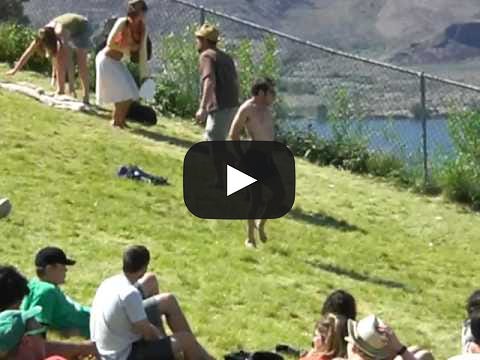 In DAOs, these three scenarios are playing out simultaneously all the time. There are people watching and learning on the sidelines, there are the contributors on the floor dancing to the beat, and there are gaps opening up waiting to be filled by the next person to take the lead. These three options, the lurker (learner), contributor, and leader are playing out within ourselves too. We browse the channels and forums, listen in on the conversations of others, and learn as we go. We unmute our mics, raise our hand, and contribute to projects. And sometimes, we see an opportunity or a problem and start to create a solution, in which case, we are faced with the decision to lead. The power that is actualized and distributed in DAOs is the power of agency. You get to choose your adventure. You get to reclaim your power and vote with your actions. In DAOs, as in life, how you show up matters. With the freedom of self-expression, you are faced with a nebulous question, what are you going to do with it? Everyone seeks freedom; it is one of the core values of modern society. But learning how to inhabit our freedom is not an easy task, and we haven’t really been trained in how to do it well or properly. DAOs give us the opportunity to explore our freedom and agency in a community where those values are recognized and we have the supporting principles to act on that freedom. The layers of control, manipulation, and bureaucracy have been stripped away in favor of the recognition that here, in this dance, we all have power. Putting Power to UseIf our presence in the group and how we show up matters, the question arises: how do we exercise our power in DAOs? Power is decentralized and distributed in DAOs, which means everyone on a project or team is involved in the decision-making process. This can seem overwhelming, because if everyone is involved, how are decisions actually made? The Rules of Engagement.Every DAO follows their own guidelines for decision-making, but there is a lot of common ground. At the base layer of the organization are the rules for managing the treasury and executing decisions. While some DAOs operate using smart contracts, most DAOs are really self-managed organizations with the rules instantiated in governance documents and team structures. Even without a smart contract executing decisions, there is no single person or central authority in charge of making decisions and allocating funds. Finding Agency in the Decision-Making Process.As a member of a DAO, you can choose to exercise your power in the decision-making process. You can choose to read proposals, provide feedback to others, write a proposal based on an idea you have, or provide a solution to a problem. If you see something, say something. Your voice matters. There are different models by which DAOs make decisions. Proposals for new ideas or changes can be put forward by any member. Proposals can be consent-based, advice-based, or approved by soft or hard consensus. Generally, your proposal should include its purpose and rationale, lay out the financial implications, and be explicit about who needs to be involved and what is needed to execute it. The proposal process requires a “discussion and amendment” period, where relevant parties and members are invited to provide feedback, followed by a voting period to gather consensus. In the discussion and amendment process, it is important that the proposer recognizes that while they must be open to feedback and seek advice from others, not all feedback needs to be included in the final proposal. Consensus doesn’t mean the initial proposal has to be watered down to include everyone’s ideas. It means you must be open and receptive to feedback and then commit to a way forward. If there are no principled objections to a proposal, you need to accept that this might not work, but things can always be revisited and revised later.  Consensus is a word that you will hear a lot in DAOs. Everyone has a voice and the freedom to partake in the proposal process and discussion, but there is no decision that can be made where everyone agrees. Consensus is a line in the sand that everyone agrees on. You need to establish the rules of engagement for what consensus is and then stick to it. This proposal process gives ownership and responsibility to the proposer and team. It fosters initiative and motivates team members to be accountable for results. The proposal process can seem to take a lot of time, but it also creates community, engenders humility in leaders, fosters learning, and hopefully leads to better decisions. And it can be fun. Culture of LeadershipEven though power is decentralized and distributed in DAOs, natural hierarchies form based on skills, personal traits, social capital, and reputation. These are not the power dynamics of traditional companies, nor are they the centralizing of decision-making. Leaders in DAOs emerge based on opportunities that exist for designing better systems, building new products, or helping new members level up. Leaders must lead by example, inspire their teams, and work hard to understand the art of collaboration.  zakku (🤝,🦍) @fifthworldzach There is no such thing as the CEO of DAO. (At least there shouldn't be) So how do you lead when no one is in charge? "The leader is the one who knows what to do next" Here are 3 critical DAO leadership activities that are almost always helpful and needed 👇As DAOs evolve, various structures and practices will emerge and dissolve, but it is the culture that will shape its people and their behaviors, determining whether the movement will thrive and grow. Navigating the Sovereign LifeThe promise of DAOs is that you can reclaim your agency and thus your power. You hold the keys to the life you imagine. The sovereign individual must learn to occupy their freedom with purpose and intent. This newfound freedom and power can create struggle in the beginning. There is so much you could do, so many places for your attention to go and your energy to follow. How do you prioritize your commitments? When do you say yes, and when should you say no? Despite the values of freedom and power, it is still challenging for people to stand up, unmute their mics, and raise their hand. DAOs give you that power, but you are responsible for your own learning and personal development. You are responsible for your decisions and accountable for your actions. You might make mistakes along the way, but that’s okay. We all do. We trust that you have something to learn and something to contribute. We trust that you will use your skills, develop your talent, level up, and grow. We also trust that when you see a gap, when the opportunity presents itself and you see a chance to lead, that you will step into that empty space and start dancing. Actions steps📖 Read Three Myths about Self-managing Organisations, Debunked 🎧 Listen Bankless: Does Decentralization Matter? with Kevin Owocki & Cooper Turley 🎧 Listen Green Pill: Fractal Sovereignty with Tracheopteryx 🙏 Sponsor: Parcel - Simplifying payouts for DAOs. DAOs at a Glance
Web3 Starter PackAuthor: Crypto, Culture and Society Crypto, Culture and Society has put together a comprehensive Web3 starter pack for those new to crypto. The starter pack includes everything you need to get started on your journey into NFTs, Defi, DAOs, and Web3. Each section presents various types of content and media, with a goal of allowing you to explore at your own pace. Dig into the Starter Pack and check out some of their other course materials. Lands of LorecraftAuthor: Venkatesh Rao Lorecraft is an internet-native school of management thinking and organization theory. Lore—an organization’s culture, identity, and shared sense of history—is the mythical thread that ties the organization together. Three thinkers offer different takes on lorecraft: Rafael Fernandez, Kei Kreutler, and John Palmer. Rafael Fernandez - Lexicon matters when building lore, but lore is different than marketing. Marketing sells to the outside while lore is used to cohere the inside. Lore is cultivated over time, nurturing the parts that work and pruning the parts that don’t. This is the process of creating an organizational mythos and how a culture scales. Kei Keutler - Eight DAO qualities can help us map the cultural contours of an organization and create a DAO’s lore: alegal, superscalable, executable, permissionless, aligned, co-owned, and mnemonic. Keutler’s model reminds us to incorporate the persistent power of lore into our decision-making to allow for rapid, intuitive decisions. John Palmer - Focus less on !vibe and more on lore. Palmer believes vibes are a sort of failed lorecraft—an unfinished mythos. Speaking in lore-based aphorisms, even sardonic or absurdist, is foundational in our memetic culture. Lorecraft brings magic and myth into our daily work lives and helps us to run organizations that are highly automated, leaving us to deal with interesting and hard questions. Seeing lorecraft as way to shape the future of organizations will allow us to build better, more resilient organizations. Overview of DAOs EcosystemAuthor: ghiya.eth This DAO primer presents a comprehensive overview of the DAO ecosystem, starting with the basics of how DAOs work and exploring the various attributes that make DAOs unique. It is important at the outset to set up the DAO structure and operations in such a way that it aligns with the DAOs purpose. The main elements include governance, the entity structure, and the legal structure of the DAO. Once your DAO is up and running, there are five attributes that are prerequisites for a thriving community: Contribution: Contributors move fluidly within and between DAOs, and in order to attract talent DAOs need to support a variety of contributor models. Compensation: DAOs use a variety of compensation methods to reward contributors in a fair and transparent way, including Coordinape, SourceCred, and Opolis. Collective Ownership: Collective ownership is at the heart of community-owned organizations. DAOs present a framework for an organized culture of builders, developers, and creatives that will usher in the next generation of the ownership economy. Collaboration: Working together in an online, global community is hard work, and DAOs need tools that offer interactive and functional collaboration. Coordination: The opportunities for coordination failures are numerous, but some of the biggest challenges happen in governance, onboarding, and treasury management. Better DAO tooling will ease these pain points and foster better coordination between members. Why DAOs are the new firmsAuthor: Donovan Choy When Ronald Coase was asked the question why firms exist, he came up with the initial solution: efficiency. To leave more time for CEOs managerial duties, a hierarchical U-shaped corporate structure was to be set up, complete with workers signed by long-term contracts. The theory was not without its critiques. By the 20th century, larger enterprises had shown faults within the centralized structure, stemming from its power concentration in the hands of a few top men. This lead corporations to an M-shaped multidivisional structure, entrusting decision-making into lower-level divisions, each overseeing different areas of the business. Decentralizing the firm left day-to-day decision-making in the hands of divisional managers, leaving upper management to focus on strategy. This also led employee incentives to rise, giving them more options for expansion within their divisions than the previous mode of governance. With greater transparency, absence of central planning and a tokenized smart contract system, DAOs show their capability to radically shift organizational power structures. Community Saves the WorldAuthor: Gideon Rosenblatt With economics driving our planet in an undesirable direction, communities need a new way to move ideas forward and make drastic changes. Our modern communities are understood as either place-based communities, which refer to the network of those in close proximity, or common-interest communities, which are not bound by a physical space. Conventional groupings of these communities fall short: when humans house ideas in corporate containers, mission alignment is distorted by pressure from corporate profit incentives. Organizational shortcomings stand in the way of human potential. “Decentralized Autonomous Communities” are emergent communities that can rally for change where other human groupings have failed. Their tool is the blockchain. It can be used to create tokens which free the organization from funding pressure. As a result, more energy can be spent on uniting people around ideas. A second advantage of the blockchain is its ability to facilitate self-governance. Ecosystem Takes
DAO Governance: Challenges, Ideas and ToolsAuthor: Jan Ole Ernst and Simon Sällström DAO’s aim to implement frictionless democracies where decisions are made through a community vote without administrative barriers. Decisions implemented by the DAO should directly reflect the preferences of its members, but the operations of a truly autonomous and decentralized dream is challenging and has evoked debate about voting, treasury design, incentive design, and governance tooling. This article sheds light on developments in the field of DAO governance.
Go-to-Market in Web3: New Mindsets, Tactics, MetricsAuthor: Maggie Hsu In web2 companies, go-to-market (GTM) strategies focus on generating leads, acquiring customers, and retaining them. DAOs and web3 companies are creating new models that use tokens to turn users into owners. There are several different go-to-market strategies web3 companies can adopt depending on how they’re built.
Decentralization for humans: exploring four key areas of DAO decentralization in 2022Author: Samantha Marin 🔑 Insights: Breaking away from a command-and-control organizational form is often core to modern online communities. However, what does it really mean for a DAO to be decentralized?
Defining Real and Fake DAOsAuthor: Gabriel Shapiro 🔑 Insights: Sometimes it makes sense to get caught up in semantics. In the acronym, DAO, the words “decentralized” and “autonomous” are adjectives that modify the noun “organization.” Magic happens when all elements interact together and produce emergent properties:
DAO Delegates: Misunderstood and MisusedAuthors: Dan Wu, Julia Rosenberg, zkchun 🔑 Insights: Delegate voting, where voting rights are consigned to another community member with more time and expertise, has been heralded as the fix for attention fatigue and low turnout. But delegate voting has not increased voting numbers as much as expected due to misaligned incentives, unclear responsibilities, and scaling problems. The solution is metagovernance. Metagovernance uses a very different model, relying on coalitions, which are blocks of voters aligned between a particular purpose and mission.
DAO Spotlight: Proof of HumanityThe Proof of Humanity DAO is building the internet of trust by solving some of the hard problems of an online digital identity. Using social and video verification, they are creating a sybil-proof directory of humans to create equitable systems of decentralized governance and social welfare. Sybil attacks are a type of attack on a network in which the attacker creates a large number of false identities to increase their voting power, subverting the reputation, trust, or operations of the victim. This type of attack can have dramatic implications for protocols and governance structures that rely on one-person-one-vote or quadratic funding mechanisms. By building a decentralized, AI-resistant, sybil-proof digital identities, Proof of Humanity unlocks various blockchain-based use cases. This includes quadratic funding, social key recovery, certifications, credit scores, digital democracy, and economically incentivized Universal Basic Income (UBI). By verifying your identity with Proof of Humanity, you can receive 1 UBI token per hour and stake UBI in either ETH/UBI or DAI/UBI liquidity pools to increase UBI issuance. Verifying your identity also improves your Gitcoin Grants Verification Score, increasing the impact of your donation by up to 150%. 👉 Get Trusted for Gitcoin Grants Get Plugged InEvent HighlightsBanklessDAO - Permissionless Conference— Tickets are on sale for one of the biggest DeFi conferences of the year! Over 5,000 people will be attending in total and every two weeks 250 more tickets unlock. Once the 250 tickets are purchased, registration closes and you’ll have to wait until the next release. Speakers include our very own Ryan Sean Adams and David Hoffman, as well as many others. Join us on Tuesday - Thursday, May 17 - 19, 2022 in sunny Palm Beach, Florida for the event. 🧳 Job OpportunitiesGet a job in crypto! Do you like solving hard problems, care about building more efficient markets for everybody, and want to work at the frontier of decentralized finance? KeeperDAO is looking for full time contributors, with salaries ranging from $169,000-$722,000. There are positions ranging from engineering, recruiting, product marketing, copywriting, and design. Sound interesting? Sign up for our referral program and go full-time DAO.
🙏Thanks to our sponsorParcelParcel is a treasury management and payments tool that helps to manage payroll, expenses, grants, airdrops and more for a DAO. Parcel works with over 200 DAOs, including prominent ones like IndexCoop, BanklessDAO, Synthetix, Compound Grants and Aave Grants DAO. Scaling financial operations for DAOs is a challenge, especially when there are multiple contributors with varying levels of contribution. Parcel helps to get rid of the spreadsheets with contributor management, 1-click mass payouts and automated recurring payouts. 👉 Our website: https://parcel.money/ 👉 Join our Discord. 👉 Follow us on Twitter. If you liked this post from BanklessDAO, why not share it? |
Older messages
Metaverse Fashion Week | Decentralized Arts
Monday, March 21, 2022
BanklessDAO Weekly NFT and Cryptoart Newsletter
The Tokenomics Crew | BanklessDAO Weekly Rollup
Saturday, March 19, 2022
Catch Up With What Happened This Week in BanklessDAO
Bankless Academy Gitcoin Grants, Research Workgroups and Epoch 0 NFTs | Gearing Up
Tuesday, March 15, 2022
BanklessDAO Weekly Project and Guild Updates Newsletter
Decentralized Rebellion | Decentralized Arts
Monday, March 14, 2022
BanklessDAO Weekly NFT and Cryptoart Newsletter
What the Hell Are Governance Solutions Engineers? (Part II) | BanklessDAO Weekly Rollup
Saturday, March 12, 2022
Catch Up With What Happened This Week in BanklessDAO
You Might Also Like
Cardano’s Charles Hoskinson reacts to White House crypto summit snub
Thursday, March 6, 2025
Hoskinson focuses on legislative progress, unfazed by his absence from Trump's crypto summit. ͏ ͏ ͏ ͏ ͏ ͏ ͏ ͏ ͏ ͏ ͏ ͏ ͏ ͏ ͏ ͏ ͏ ͏ ͏ ͏ ͏ ͏ ͏ ͏ ͏ ͏ ͏ ͏ ͏ ͏ ͏ ͏ ͏ ͏ ͏ ͏ ͏ ͏ ͏ ͏ ͏ ͏ ͏ ͏ ͏ ͏ ͏ ͏ ͏ ͏ ͏ ͏
Monthly Update on Blockchain Technology: Pectra testnet activation, zero-knowledge gossip, BNBChain roadmap
Thursday, March 6, 2025
Written by: GaryMa, WuBlockchain ͏ ͏ ͏ ͏ ͏ ͏ ͏ ͏ ͏ ͏ ͏ ͏ ͏ ͏ ͏ ͏ ͏ ͏ ͏ ͏ ͏ ͏ ͏ ͏ ͏ ͏ ͏ ͏ ͏ ͏ ͏ ͏ ͏ ͏ ͏ ͏ ͏ ͏ ͏ ͏ ͏ ͏ ͏ ͏ ͏ ͏ ͏ ͏ ͏ ͏ ͏ ͏ ͏ ͏ ͏ ͏ ͏ ͏ ͏ ͏ ͏ ͏ ͏ ͏ ͏ ͏ ͏ ͏ ͏ ͏ ͏ ͏ ͏ ͏ ͏ ͏ ͏ ͏ ͏ ͏ ͏ ͏ ͏ ͏
Reminder: White House Schedules First Ever Crypto Summit
Thursday, March 6, 2025
March 3rd, 2025 Sign Up Your Weekly Update On All Things Crypto TL;DR White House Schedules First Ever Crypto Summit SEC Declares Meme Coins Are Not Securities Consensys Secures Victory In MetaMask
Donald Trump to reportedly unveil Bitcoin reserve strategy at White House crypto summit
Wednesday, March 5, 2025
Key industry figures, including Michael Saylor and Brian Armstrong, to join Trump at White House crypto summit. ͏ ͏ ͏ ͏ ͏ ͏ ͏ ͏ ͏ ͏ ͏ ͏ ͏ ͏ ͏ ͏ ͏ ͏ ͏ ͏ ͏ ͏ ͏ ͏ ͏ ͏ ͏ ͏ ͏ ͏ ͏ ͏ ͏ ͏ ͏ ͏ ͏ ͏ ͏ ͏ ͏ ͏ ͏ ͏ ͏
DeFi & L1L2 Weekly — 🚀 Cronos pioneers seamless crypto-to-debit transfers; Virtuals Protocol saw a 95% drop in tr…
Wednesday, March 5, 2025
Cronos pioneers seamless crypto-to-debit transfers. Virtuals Protocol saw a 95% drop in trading volume. Ondo Finance joined the Mastercard network to improve cross-border payments. ͏ ͏ ͏ ͏ ͏ ͏ ͏ ͏ ͏ ͏
DeFi & L1L2 Weekly — 🚀 Cronos pioneers seamless crypto-to-debit transfers; Virtuals Protocol saw a 95% drop in tr…
Wednesday, March 5, 2025
Cronos pioneers seamless crypto-to-debit transfers. Virtuals Protocol saw a 95% drop in trading volume. Ondo Finance joined the Mastercard network to improve cross-border payments. ͏ ͏ ͏ ͏ ͏ ͏ ͏ ͏ ͏ ͏
Global Crypto Mining News in February:U.S. Customs Increases Scrutiny of Chinese Bitcoin Mining Machines, Bitdeer …
Wednesday, March 5, 2025
1. Bitfarms said it is exploring ways to enter the artificial intelligence and high-performance computing space, as bitcoin miners continue to explore alternatives following last April's bitcoin
Crypto traders lose nearly $1 billion as US-China trade war overshadows Trump’s crypto reserve initiative
Tuesday, March 4, 2025
US trade tensions with China and allies spark $500 billion crypto market plunge despite Trump's crypto reserve plan. ͏ ͏ ͏ ͏ ͏ ͏ ͏ ͏ ͏ ͏ ͏ ͏ ͏ ͏ ͏ ͏ ͏ ͏ ͏ ͏ ͏ ͏ ͏ ͏ ͏ ͏ ͏ ͏ ͏ ͏ ͏ ͏ ͏ ͏ ͏ ͏ ͏ ͏ ͏ ͏
Analyst Spotlight Solana Overview
Tuesday, March 4, 2025
An in-depth look at Solana (SOL) and this week's market developments ͏ ͏ ͏ ͏ ͏ ͏ ͏ ͏ ͏ ͏ ͏ ͏ ͏ ͏ ͏ ͏ ͏ ͏ ͏ ͏ ͏ ͏ ͏ ͏ ͏ ͏ ͏ ͏ ͏ ͏ ͏ ͏ ͏ ͏ ͏ ͏ ͏ ͏ ͏ ͏ ͏ ͏ ͏ ͏ ͏ ͏ ͏ ͏ ͏ ͏ ͏ ͏ ͏ ͏ ͏ ͏ ͏ ͏ ͏ ͏ ͏ ͏ ͏ ͏
ETH Denver Conference Impressions: VC Indifference, Lackluster Narratives, and the Disillusionment of Idealism
Tuesday, March 4, 2025
Compared to last year — and even more so than the recently concluded Consensus — the overall atmosphere was much more subdued, with panel speakers noticeably outnumbering the audience. ͏ ͏ ͏ ͏ ͏ ͏ ͏ ͏
